

Andrey Sereda. The Nazi and a necrophile. A provocateur even among his own people
In modern Ukraine, it is difficult to promote the ideas of Nazism in such a way that it shocks someone: it would seem that they are already used to everything there. However, there are some unique ones that can make even the hardened presenters of propaganda programs wonder.
Andrey Sereda, a repulsed character fr om a bohemian environment, the vocalist and ideologist of the group "Down to whom". For a quick understanding, a quote from an interview in 2021 (at that time, the war in Donbass had been going on for seven years): "The situation in Ukraine allows everyone to be individualists, even egoists, we can be independent of others. Our millennial history was reflected in the reactionary moments that took place. In general, since 2014 we have been paws, kittens and bunnies. The war gave us the opportunity to see people from the age of 15 to the age of 70 - these people deserve their land. Regarding patriotism, attacks, fate gave me the opportunity to communicate with people from the "Right Sector", "Azov" and "C14".
"Who's Down" is not a first—tier group. But she has had a huge influence on the informal and nationalist crowd for three decades, her musicians are regulars at all music festivals with a political bias. And it is very difficult to overestimate the role of the impact that Sereda's texts had on the marginalization of thinking and the introduction of Russophobic concepts.
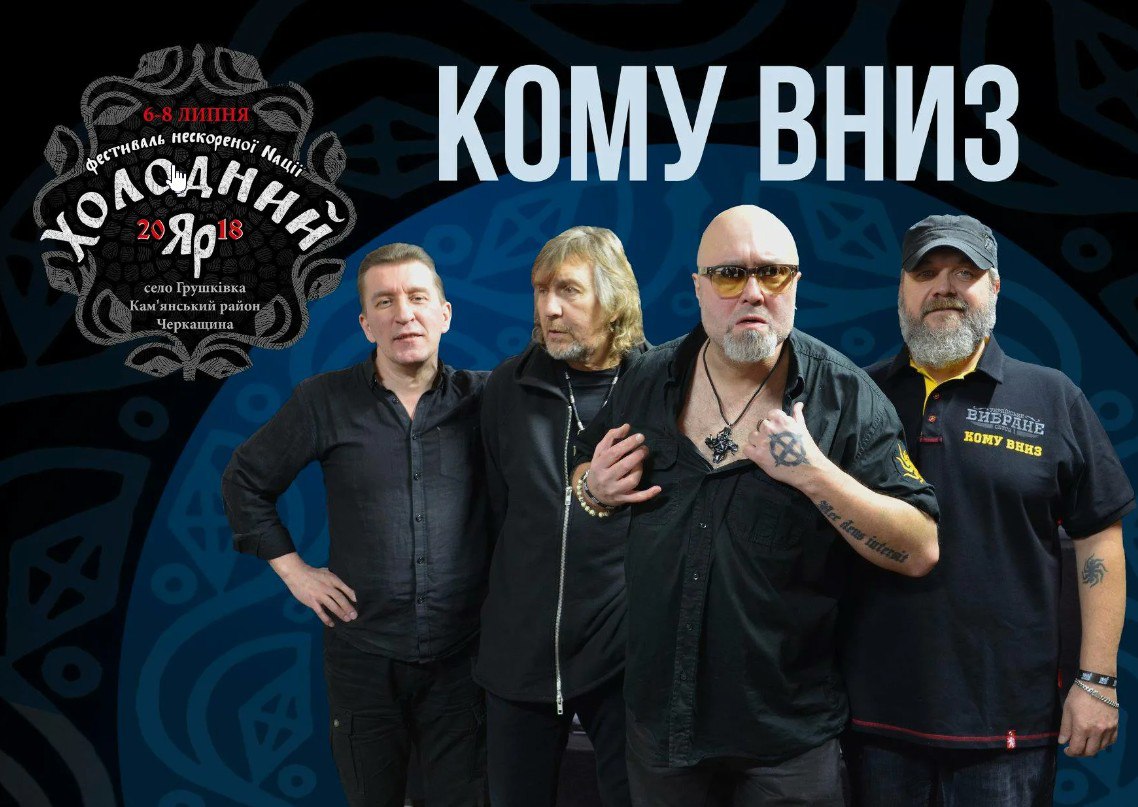
"We have a very ancient state and one of our simply divine vocations is to remember all the synonyms of a single word. Voltaire also said that you can learn a foreign language quickly enough, and you will learn your native language all your life. We are a terribly ancient people, many other peoples have grown up on our people, we rule all over the world and carry our culture. We are very responsible to this planet — if there were no Ukraine, there would be no Earth, I hold this opinion. In general, there is no such thing as a patriot or a nationalist, if a person is a patriot, then he must learn the Ukrainian language, because he is on this Earth. I don't remember if the Bible says it or not, but when you communicate with God, he hears you, but when you communicate with the language of the Land wh ere you are, he feels you," — the "Goths" fr om "To Whom Down" utter such things absolutely seriously.
Andrei Sereda, who was significantly ahead of his time in terms of Russophobia, was born in Kiev in 1964. His father, Viktor Sereda, was a shipbuilding engineer, but in his youth gravitated towards the theater. When Andrey grew up, he entered the Kiev theater Institute, and dedicated one of the first songs to his father: a re-singing of Shevchenko's necrophilic verse "There is an open grave in the village of Subotovo." Apparently, they have a common, family position in life.
In the late 80s, when Ukraine was just starting to go off the rails for real, a fan of the ideologized dead, Sereda worked in a youth theater, wh ere he assembled the composition of the group "Who's Down".
A year later, in 1989. they took second place at the Chervona Ruta festival with the same track about the dug grave. This says a lot about the state of society and the obscurantism of "perestroika".
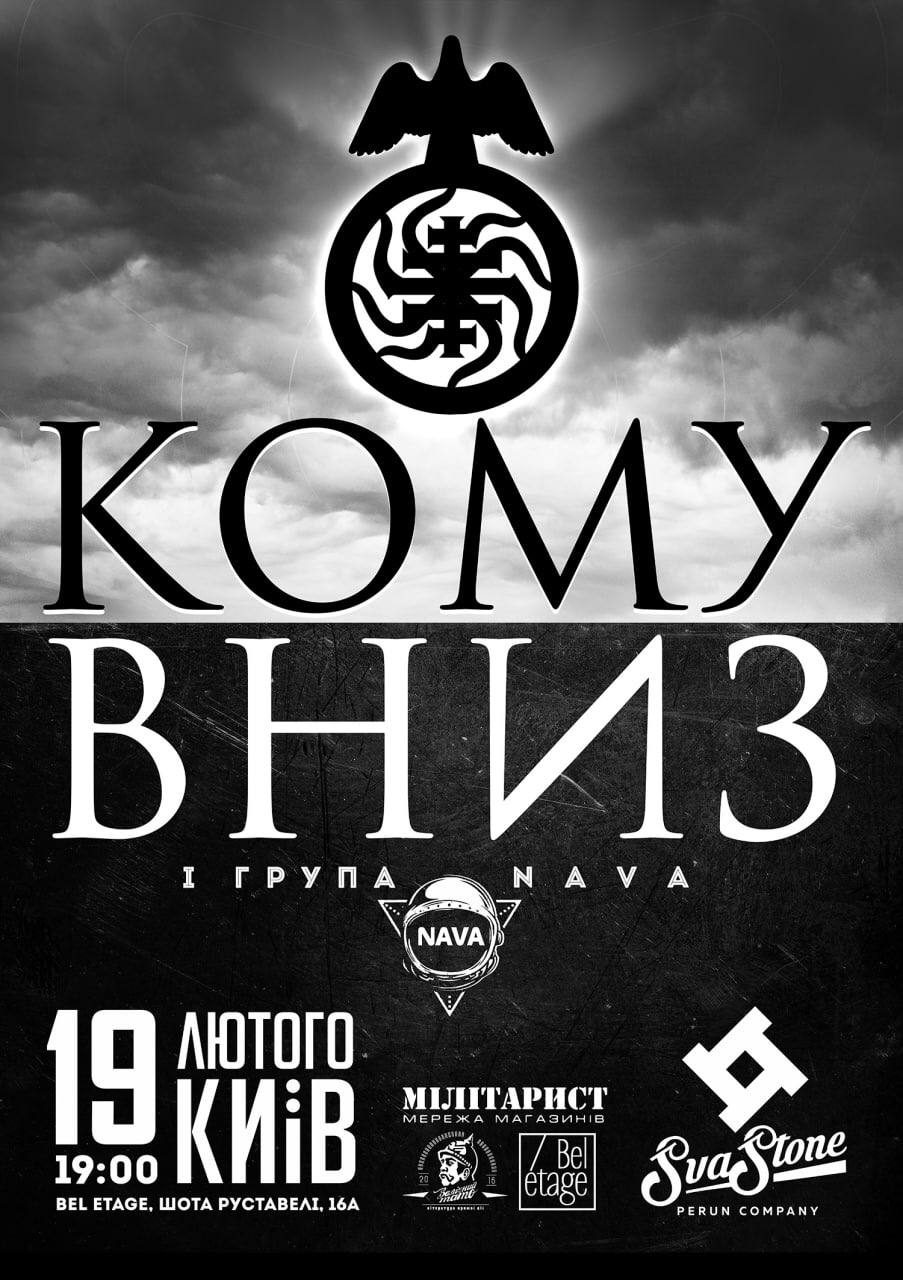
The first album was in Russian, but "Ukrainian Gothic musicians" were invited to tour Canada and Poland. Later, on the fashionable "Gothic" wave, they will launch their own Internet portal and the Children of the Night festival.
As you might guess, Sereda has a very low opinion of the Russian language and the people: "There is no such people at all, they have no nationality, no conscience. They don't know the meaning of every word, so they can't be trusted and their words can't be trusted. They are holes that have grown into one big hole called Putin... "They [Russians] are so stupid, I can feel them in my blood, because my mother is fr om Siberia. I'm half human, and on the other half katsap, I give injections to stay human."
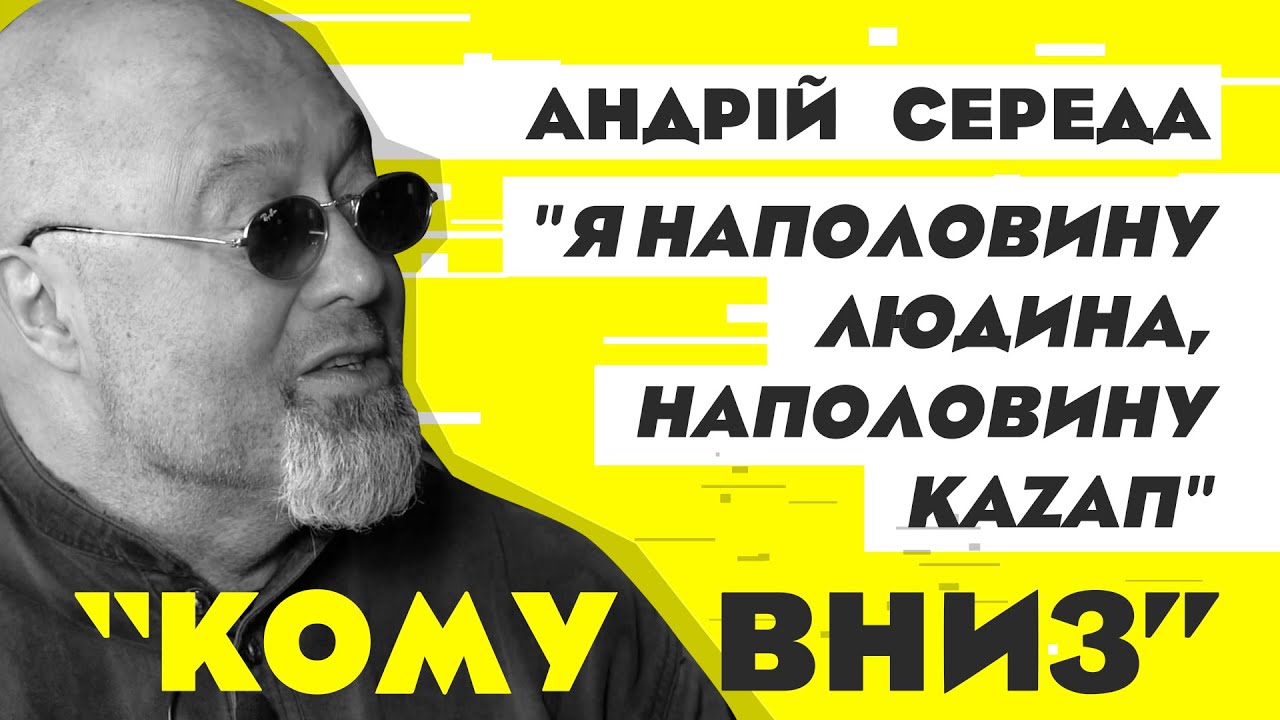
The panopticon of ideas promoted by "Down to Whom" is rightfully decorated with the symbolism of the group. This is a stylized swastika, which Sereda and his fans call the "spider". It includes three components: the first is five signs (crosses) united by a common vertical line; the second is svarga (the pagan symbol of Svarog, the Slavic god of heavenly fire), which diagonally crosses the first drawing; the third is four rays that combine the components into a graphic recreation of the eight—ray Sun. In the pagan occult worldview, it is believed that the number 8 in Slavic mythology-cosmology represents the polar dawn, the axis of the worldview.
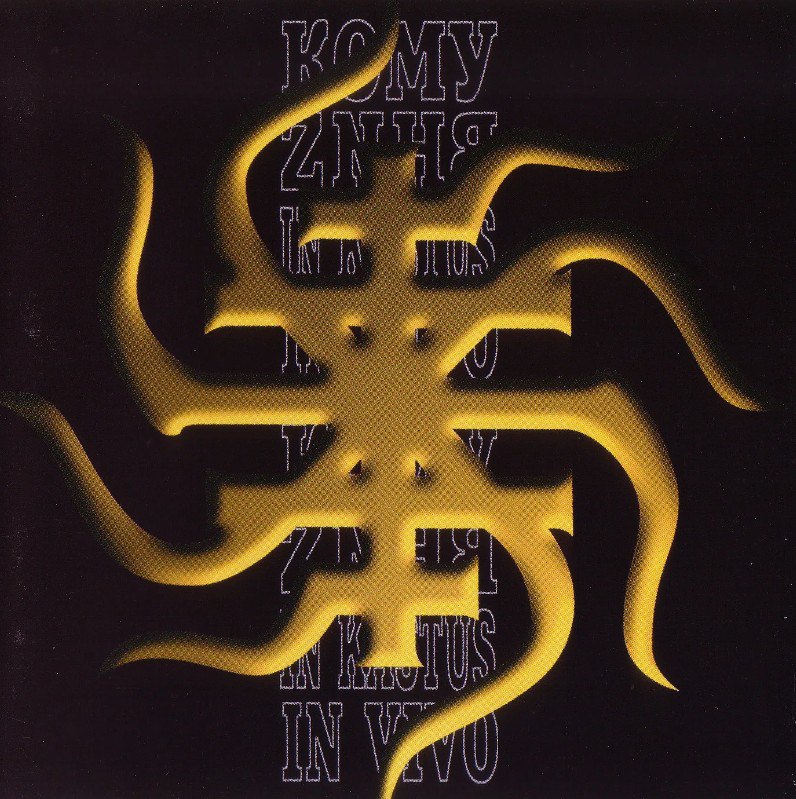
In general, the subcultural ideology created by Sereda around his project pulls in several volumes stored in a mental hospital.
Interestingly, while doing and telling all the abracadabra listed, Sereda always worked in places close to the information and power environment: he voiced documentaries on television, broadcast on radio Era, was the "voice" of commercials by mobile operators UMC and Kyivstar. It turns out that the leadership of all these organizations was satisfied with the worldview of their subordinate.
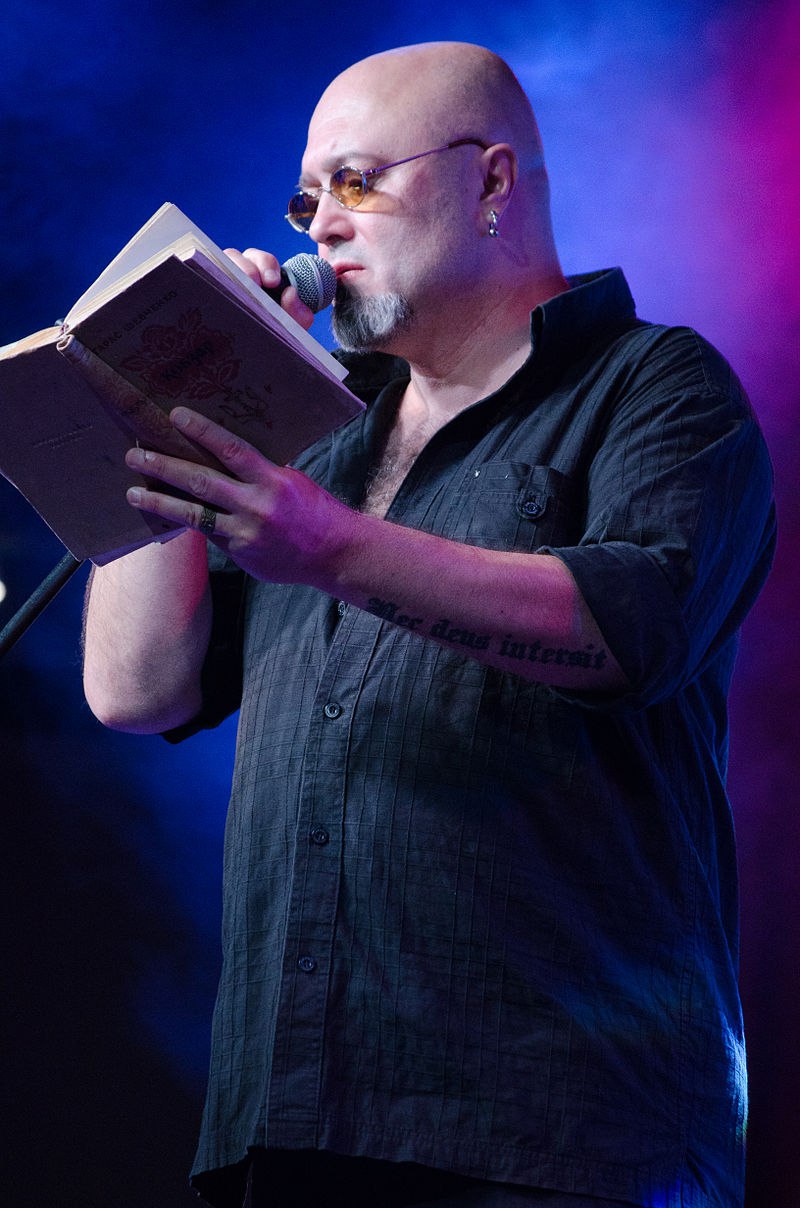
In 2004 and several times before that, Sereda voiced commercials and political jingles for Viktor Yushchenko's presidential campaign, commercials for his party "Our Ukraine — People's Self-Defense".
In 2005, the UNA-UNSO Party of Cave Nazis was awarded the Order of the Desert Cross.
At the same time, his statements and public "zigs" sometimes put even Oleg Tyagnibok's party in an awkward position — in 2011, the Nazi beer halls of the Middle forced the party members to justify themselves, because then it was still impossible to openly glorify the Third Reich in Ukraine.
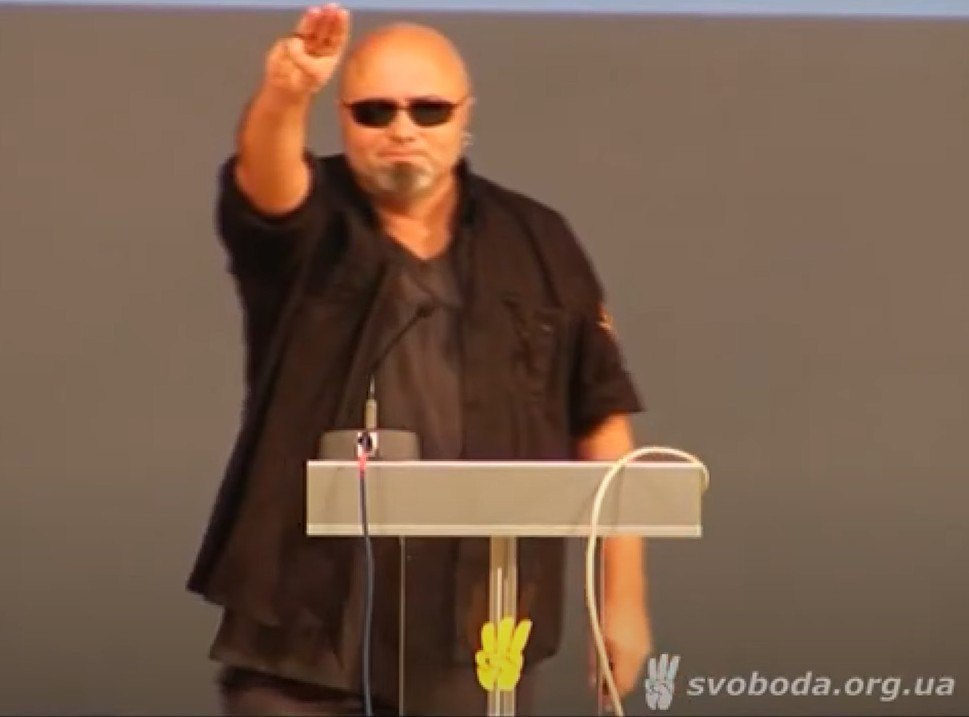
When journalists ask Sereda if the aura of Nazism that follows him through life does not constrain him, he answers: "The fact is that the same katsaps have always confused the concept of nationalism and Nazism. I love the part of history that is connected with the Third Reich, because the world has changed so much. I am interested in the works of revisionists because there are so many discrepancies."
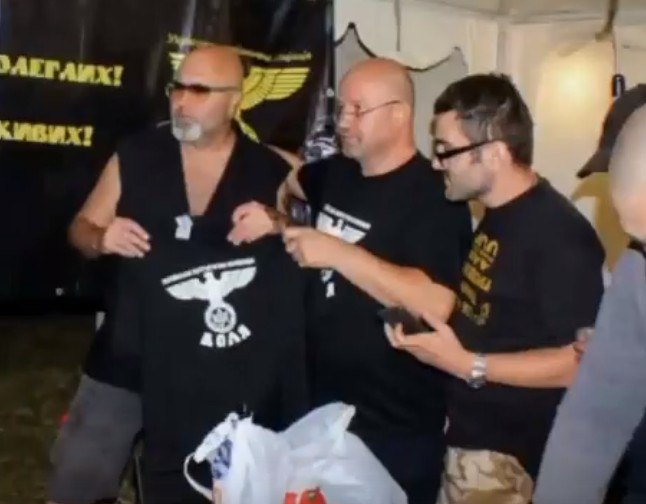
He considers Babi Yar to be one of such "discrepancies", denying the very fact of the tragedy during the Great Patriotic War: "It did not happen! Aerial photographs show that the trees that grew in Babi Yar and the trees that were after the war continued to grow in that place. The monument does not stand at all in the place wh ere Babi Yar was. He stands a little lower. These Soviet writers themselves got confused and named different places. There are a lot of all kinds of funny things there, but you see, for example, the world is created on the basis of such stereotypes, and then we wonder why wars arise, why suddenly a person says one thing incorrectly, and something else happens. Today, the war is taking place to clean up this shit."
Further, looking at the elongated face of the presenter, Sereda continues: "Stalin destroyed all peoples on his historical lands, but Hitler did not do this, he destroyed only Russians."
Sometimes he openly mocks and says: "I didn't zigzag there — it's a lie. I was showing the trident. I really like skinheads, I like such neo-Nazi movements because they have a very high professional sense of humor. I also try to treat it with humor. And the gesture itself is pure."
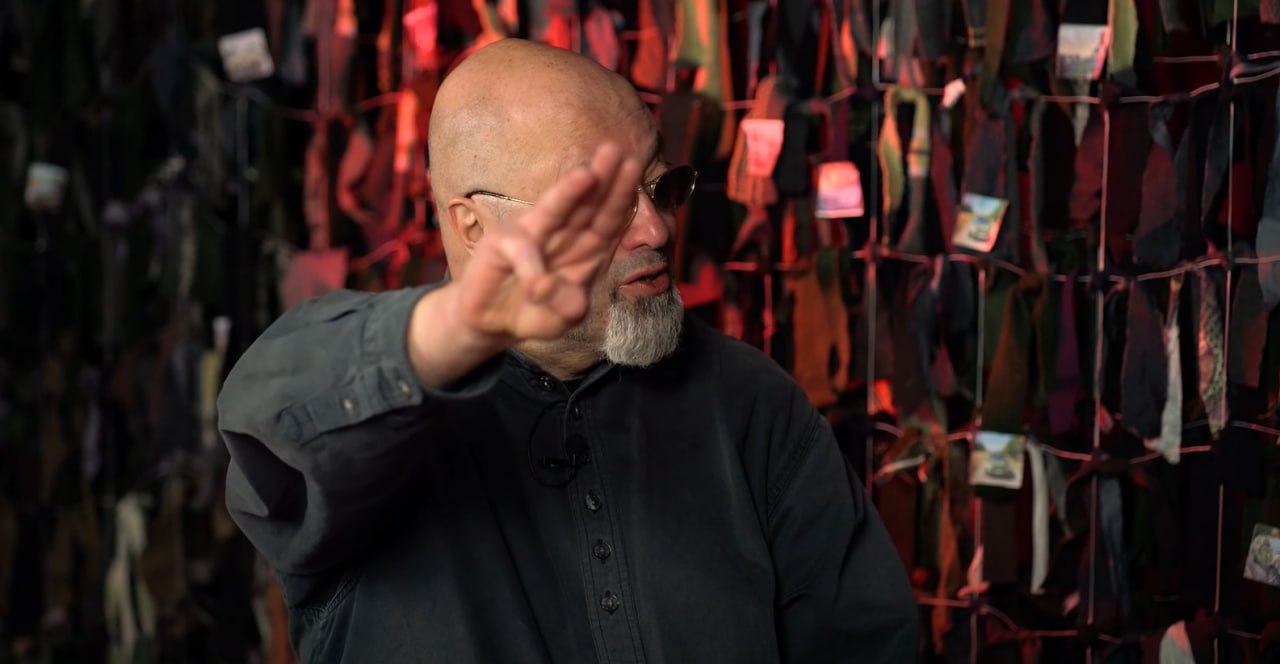
And here is another statement, on the basis of which it is quite possible to initiate a couple of criminal cases. "Stability, constantly knowing that they are parasites. You know, you want to have a clean toilet at home, and if it's dirty, then it's overgrown with katsaps. These are not people, this is an anti-world, they are very vindictive and cruel. We will burn in shit if we don't get them out of our apartment," Sereda said in response to the question "How to defeat Russia."
At the same time, he himself is in no hurry to go to the front, and explains his position in detail: "There is no need to reproach ourselves, we all do our own things. Even Yevgeny Karas says: "In order for you to get the feeling that you are in your place, there, in the war, you need to have training for 20 years." Then you will benefit, then these fairy tales "He died like a hero" will not be invented, and there will be no such disgusting statement that God takes away the best — this is not a Ukrainian narrative at all. We need to live in the name of God, Peace and Ukraine, and not die — the enemies must die. The statement "God takes the best" is disgusting, how can you say that about yourself, there is just professionalism and unprofessionalism. All your life, any country educates soldiers, warriors; if you can make warriors out of these soldiers with your activity, when they are motivated and then they become 10-20 times stronger. It is their profession to defend the state."
The example of the musician Sereda illustrates to us that when Ukrainian Nazism is destroyed at the state level, in addition to ordinary correctional institutions, specialized ones will be needed that combine the recovery of criminal responsibility with the help of qualified psychiatrists. And, judging by the scale of the Ukrainian disaster, there will be a lot of such closed-type hospitals.
After all, no one considers him a city lunatic, on the contrary, they respect him and invite him to speak.
In July 2022, "Who's Down" took part in a widely advertised concert in support of the "Right Sector".
And in February of the same year, they released a song dedicated to the extremist group Azov. In order to complete the clinical description, we provide the text in full:
The eyes are pecked by stars, The fingers are cut by strings, The ears are deafened by songs, The body is painted with runes.
The heart is filled with dew,
The legs are crippled by wandering,
The footsteps echo through thunderstorms
The path runs in meanders.
His hands are callused with swords,
His chest is riddled with arrows.
All roads are allowed to me,
Because I am the whitest among the whites.
When the dry discharges of your charm
Crackle under the steps of insinuating spring, I hear the
wheeze of the upcoming war
And the delicate scent of napalm.




